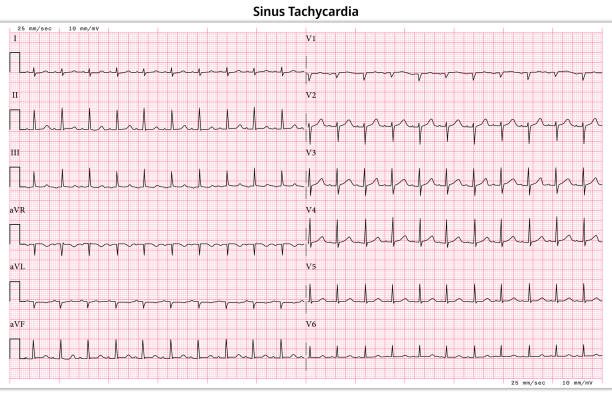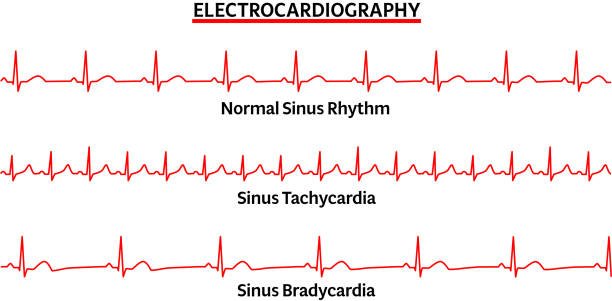
What Should I Do If My Heartbeat is Too Slow? Don’t panic yet! Understand 9 major causes, symptoms, and treatments
Lost your wallet or dropped your phone and your heart almost skipped a beat? This is not an urban legend! Generally speaking, a heartbeat that is too slow or too fast is called an arrhythmia, and an arrhythmia may be a warning signal from your body. When the heartbeat is too fast, it is mostly caused by stress, stress, or heart disease. However, when the heartbeat is too slow, it may also cause the patient to feel dizzy, palpitated, or even faint in severe cases. If left unchecked for a while, it will lead to serious complications. You have to be careful about the consequences.
What is the normal heart rate? At what heart rate does it take to be called a slow heartbeat? What are the causes of slow heartbeat? Before you realize that you are the “slow beat” patient, what are the symptoms and signs of slow heartbeat that can be identified, and how should you treat it? Let this article accompany you through the road of protecting your heart that often misses a beat!
What is a slow heartbeat? What is the normal range of heart rate?
Bradycardia, also often called “bradycardia,” means that the heart rate (Beats per minute, Bpm) is lower than normal. When the heart’s electrical pulses cannot coordinate with the heartbeat, the heart beats abnormally. A heart rhythm that is too fast (tachycardia) or too slow (bradycardia) or irregular, causing arrhythmia, is one of the common heart diseases. The normal heart rate for adults at rest is 60 to 100 beats per minute (bpm), but if the heartbeat is too slow, the heart rate will be lower than 60 beats per minute.
For the elderly, well-trained athletes and people who exercise regularly, if the heart rate is lower at rest, that is, below 60 beats per minute, it is still within the normal range of possible heartbeats. However, when the heartbeat is too slow, it may also mean that the heart is unable to push enough oxygenated blood to all parts of the body, causing the brain and other body organs to receive insufficient oxygen. If symptoms occur, you must seek medical attention as soon as possible.

9 reasons why your heartbeat is too slow
The causes of a too slow heartbeat are not only caused by congenital heart disease, aging or stress. Here are 9 common causes to help you identify which one you belong to at a glance:
- Decreased body metabolism and activity:
conditions such as sleep, hypothermia, hypothyroidism or hypopituitarism. - Vagus nerve stimulation or sympathetic nerve suppression:
When a person is vomiting, sputuming, myocardial infarction, or undergoing eye surgery, this may cause the heart rate to slow down. - Drug use:
Use beta-receptor blockers, calcium ion blockers, central nervous system depressants, tranquilizers, lithium salts and other drugs. - Increased intracranial pressure:
Constipation and stroke can increase intracranial pressure, causing the heart rate to be too slow. - Atrioventricular block:
The electrical conduction of the heart will first pass through the sinoatrial node (SA node) in the right atrium of the heart, then pass to the atrioventricular node (AV node) at the junction of the atrium and ventricle, and then pass to the ventricle to produce beating. However, if nerve impulses are blocked during atrioventricular conduction, atrioventricular block will occur, resulting in bradycardia. - Sick sinus syndrome:
The function of the sinoatrial node in the right atrium of the heart that regulates heartbeat frequency deteriorates, resulting in a slow heartbeat or a prolonged period of cardiac arrest after a tachycardia. - Valvular heart disease:
Diseases including mitral valve prolapse, tricuspid valve prolapse and other diseases may cause patients to have irregular heartbeats and rapid and slow heartbeats. - Sleep apnea:
In many patients, during the sleep apnea stage, the heart rate will drop to 30 to 50 beats. After the air flow is restored, the heart rate will jump to 90 to 120 beats. - Lyme disease:
Lyme disease is an emerging zoonotic disease that is transmitted through the bites of hard ticks (commonly known as ticks). The initial symptoms of infection are similar to those of a cold, with symptoms such as headache, mild fever, general fatigue, and chills. If not diagnosed and treated immediately, it may cause lesions in the heart, nervous system, and joints, as well as arrhythmia, pericarditis, and facial nerve paralysis. and clinical symptoms such as unilateral (bilateral) knee and heel pain.

What are the symptoms of slow heartbeat? Be careful with dizziness and palpitations!
Slow heartbeat may cause the brain and other organs to be unable to receive enough oxygen, but the patient’s heart rate usually needs to be as low as 50 beats per minute or even slower before the more obvious symptoms are as follows:
- Chest pain
- Dizziness
- Fatigue
- Heart Palpitations
- Shortness of breath
- Syncope
- Lack of energy
Although the above symptoms may not be caused by slow heartbeat, it is recommended to seek medical attention immediately once you find yourself feeling unwell, so that the cause can be determined and treated as soon as possible.
Slow heartbeat treatment
The doctor will first ask about the patient’s symptoms and perform a basic examination. If there are other questions, the patient may be referred to a cardiovascular specialist to arrange the following examinations:
- Electrocardiogram (ECG):
records the electrical activity of the heart to check whether the heart is functioning well. - Holter 24-hour continuous electrocardiogram (Holter monitor):
records cardiac electrical activity for 24 hours or more. - Electrophysiology studies:
Determine whether the heart has redundant electrical conduction pathways that may cause arrhythmias. - Echocardiogram:
Uses ultrasound (sound waves) to examine the structure of the heart, heart valves, and pumping action. - Exercise tolerance testing:
Tests for other heart conditions that may trigger arrhythmias.












